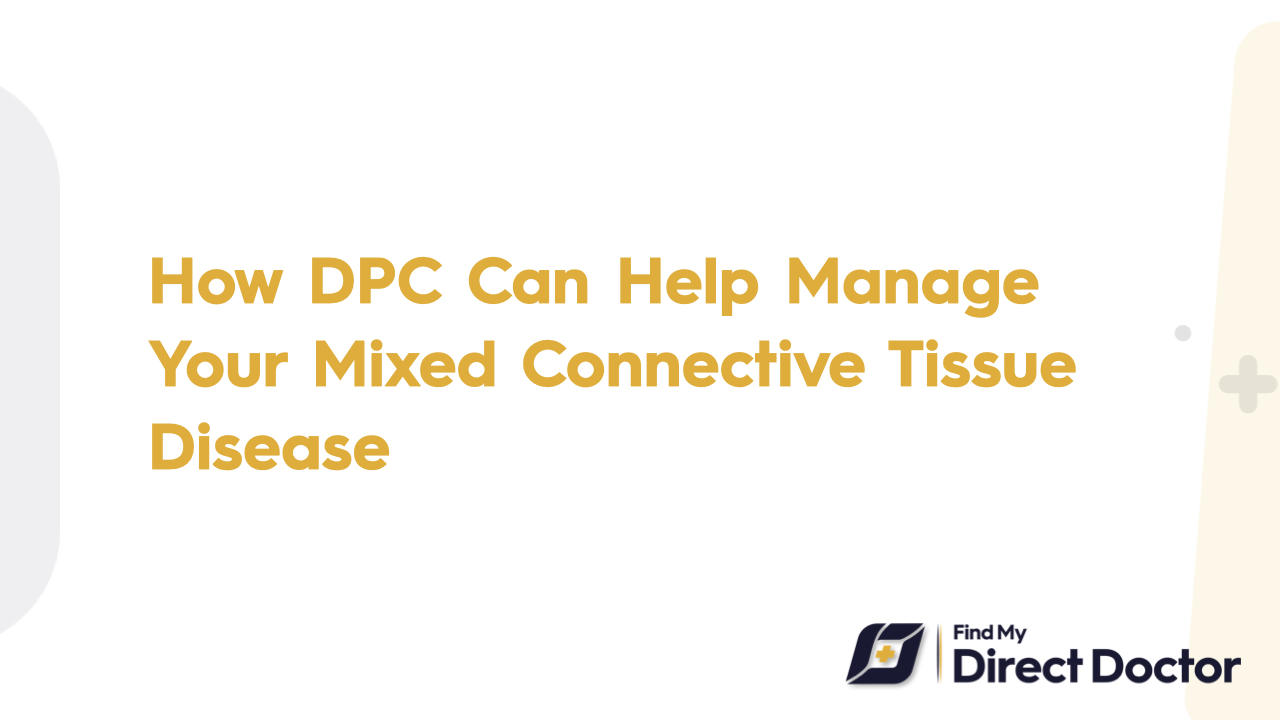



A uncommon autoimmune condition known as mixed connective tissue disease (MCTD) shares characteristics with a number of connective tissue disorders, such as polymyositis, scleroderma, and systemic lupus erythematosus. It is frequently called a "overlap disease" due to the fact that it includes symptoms from several different conditions. The illness develops when the body's connective tissues are wrongly attacked by the immune system, causing damage and inflammation. A particular antibody, anti-U1 RNP, is linked to MCTD and aids in distinguishing it from other autoimmune diseases.

MCTD symptoms can appear gradually and vary greatly. Fatigue, joint discomfort, muscular weakness, and edema are typical early symptoms that frequently mimic those of other connective tissue disorders. As the illness worsens, symptoms could include skin rashes, trouble swallowing because of esophageal dysfunction, and Raynaud's phenomenon, in which the fingers or toes appear white or blue in reaction to stress or cold. In extreme situations, MCTD may impact internal organs like the kidneys, heart, or lungs, resulting in problems like organ failure or pulmonary hypertension. For the condition to be adequately managed and serious consequences to be avoided, early detection and diagnosis are essential.
A patient-centered approach to controlling Mixed Connective Tissue Disease is provided by Direct Primary Care (DPC), which delivers ongoing, easily accessible care that is adapted to the intricacies of autoimmune diseases. Patients gain from spending more time with their healthcare provider under a DPC model because it enables in-depth conversations about symptoms, worries, and available treatments. This is especially crucial for MCTD, which necessitates close observation because it involves multiple systems.
When it comes to coordinating care amongst specialists like cardiologists, pulmonologists, and rheumatologists, DPC providers are essential. From the first diagnosis to continuing care, they guarantee that every facet of the patient's health is handled in unison. Furthermore, DPC gives patients a direct channel of communication with their doctor, facilitating prompt reactions to changes in symptoms or adverse drug reactions. This ongoing involvement guarantees aggressive and comprehensive management of the ailment.
For people with MCTD, Direct Primary Care offers numerous advantages, with a focus on accessibility, individualized care, and a comprehensive approach to treatment. The opportunity to establish a lasting relationship with a committed provider who is aware of the subtleties of the condition is among the biggest benefits. In addition to ensuring that the patient's health needs are fully addressed, this relationship builds trust.
Additionally, DPC lessens a lot of the obstacles that come with conventional healthcare systems, like hurried visits and lengthy appointment wait times. The DPC paradigm facilitates the frequent monitoring and treatment plan modifications that patients with MCTD frequently need. Furthermore, because DPC removes the uncertainty associated with insurance-based invoicing, its financial transparency may be especially alluring to patients who are managing a chronic illness. This relieves patients of the burden of managing intricate financial systems so they may concentrate on their health.
Within a DPC framework, personalized management of MCTD entails developing a customized care plan that takes into account each patient's unique symptoms, triggers, and difficulties. In order to customize treatment plans, DPC providers take the time to learn about the patient's goals, lifestyle, and medical history. For instance, they might collaborate closely with experts to make sure drugs like corticosteroids or immunosuppressants are efficiently controlling inflammation while reducing adverse effects.
Changing one's diet, exercising, and controlling stress are all essential components of managing MCTD. By providing ongoing assistance and education, a DPC provider can assist patients in implementing these changes. They can also keep an eye out for possible side effects, such as involvement of the heart or lungs, and take prompt action if problems do occur. Patients with MCTD are certain to receive thorough and compassionate care because of this proactive, individualized approach, which enhances their quality of life and long-term health results.
Previous Post